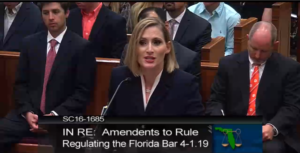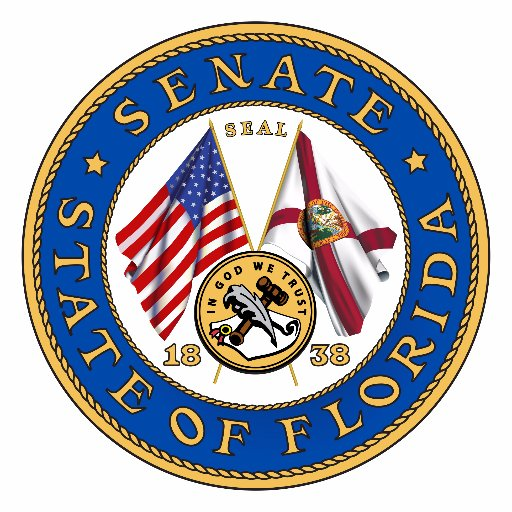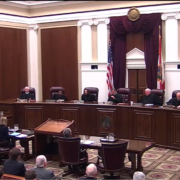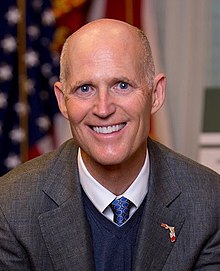On February 9, 2017, the Honorable Laurel M. Lee, Circuit Court Judge of the 13th Judicial Circuit in Hillsborough County and Chair of the Family Law Rules Committee of the Florida Bar Family Law Section, along with collaborative attorney Robert Merlin, Vice Chair of the Committee and a Board Member of the International Academy of Collaborative Professionals, stood before the Florida Supreme Court (video) to argue in favor of the adoption of collaborative law rules of procedure and professional conduct.
In 2016, Florida Governor Rick Scott signed into law the Collaborative Law Practice Act, but the Act does not go into effect until the Florida Supreme Court approves rules. The Act creates a framework for collaborative family law, which is a private form of dispute resolution where attorneys focus solely on helping clients reach an out-of-court agreement.
Judge Lee explained to the Supreme Court Justices that the process is voluntary: “It is entirely a voluntary process by the litigants and families that choose to engage in the collaborative law process. It can be terminated by either of the parties at any time.”

Judge Laurel Lee at Florida Supreme Court Arguing In Favor of Collaborative Law Rules
When asked if collaborative practice could help those with modest means, Judge Lee told the Supreme Court justices how she first came to learn about collaborative divorce:
“I first became aware of the collaborative process when a case came to my trial court in which all of the collaborative team – including the attorneys, the mental health professional, and the financial professional – had taken the case pro bono. I know in my circuit there is a group of collaborative professionals who take low cost or reduced fee cases so that parties do have access to this process even if they are not families of great financial means.”
Upon being asked by Justice Ricky Polston what effect collaborative practice has on mediation, Judge Lee replied, “They are not mutually exclusive. Collaborative is a process that the parties can choose to engage in but does not preclude the use of any other alternative dispute resolution methods. So [mediation] could certainly remain an option for litigants.”
Read more →

 Family Diplomacy
Family Diplomacy Title IV-D of the Social Security Act requires each state to set up an administrative mechanism for establishing and enforcing child support orders. Florida tasks the Department of Revenue with these administrative duties.
Title IV-D of the Social Security Act requires each state to set up an administrative mechanism for establishing and enforcing child support orders. Florida tasks the Department of Revenue with these administrative duties.





